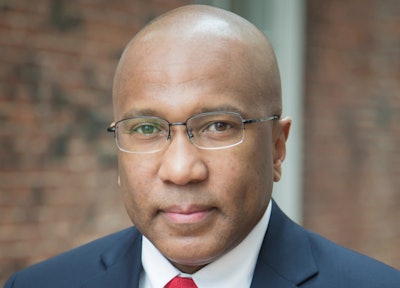Americans love stories about unlikely heroes. We love to watch or read about individuals who flourish from humble beginnings, overcoming great odds.
Of course, these stories rarely provide a view of the full spectrum of challenges faced by budding protagonists. The Center for Advancing Opportunity’s (CAO) State of Opportunity in America report, does. In partnership with Gallup, we asked 6,941 fragile community residents across America about the barriers they face in pursuing a brighter future. What we learned offers a roadmap for community organizations, businesses, governments, and policymakers to better understand struggling Americans, and address their challenges.
 Dr. Harry L. Williams
Dr. Harry L. WilliamsHuman beings are not born fragile, but millions are born into fragile communities, characterized by high proportions of residents who have limited opportunities for economic mobility. Fragile community residents, for example, are about twice as likely as U.S. adults overall to have annual household incomes under $35,000. One in 10 fragile community residents have a bachelor’s degree or more, compared with one in three U.S. adults overall.
When Gallup asked fragile community residents about the biggest barriers to opportunity in their area, two of the most common answers were a lack of jobs that offer career advancement and drug or alcohol addiction. Respondents also identified lack of transportation, high debt, lack of job training, and childcare as significant barriers. Roadblocks were not the same in all communities, of course. In urban areas, residents cited crime as a barrier, while rural residents pointed to a lack of job openings in general.
Geographic distinction is just one nuance in the report. The other is race/ethnicity, which has become even more important for understanding barriers to success in the wake of the COVID-19 pandemic, which has impacted Black Americans more than any other group, and the social unrest unleashed in the wake of George Floyd’s murder.
Gallup completed its survey in January 2020, and the results are instructive. Black and Hispanic fragile community residents believe that a college education is very important or important – 87% and 88% respectively – versus Whites, whose view of a college education’s importance has declined over the past three years. Nevertheless, only 28% of fragile community members believe that they have access to a college education. We need to make higher education affordable, so that college degrees are attainable for the lowest income Americans.
Access to education also impacts the ability to identify and seize economic opportunities. More than a third of fragile community residents said they have considered becoming a business owner in the past, but decided not to due to lack of savings or not knowing where to start. Business knowledge training can catalyze these entrepreneurs.
Law enforcement experiences also differ by race. While 43% of all fragile community residents say they know a lot or some people who were treated unfairly by the police, Black residents are almost twice as likely as White residents to make this statement. Yet, regardless of their level of trust in the police, most urban fragile community residents want the stability that effective policing provides, while fewer rural residents do. Tangible, evidence-based reforms should include these community voices, as they can inform effective policing.
Along with identifying specific barriers, Gallup researchers discovered another theme: hope. Seven in 10 fragile community residents said they are “very confident” or “confident” they can improve their own lives. This is one of the more interesting results, as it demonstrates an optimism within these communities despite the barriers. For policy makers, this is an important window into the mindset of fragile community members, which points to the potential effectiveness of well-crafted, evidence-based community-based programs to facilitate improvement.
Fragile community residents want to be their own protagonists, and they need to be partners in shaping programs and policies designed to help them overcome the significant barriers they face. We must increase urgency with which leaders in government and the private sector seek solutions to pockets of concentrated poverty and help millions of Americans lead more secure, healthy, and rewarding lives.
Dr. Harry L. Williams is the President & CEO of the Thurgood Marshall College Fund. You can follow him on Twitter @DrHLWilliams.


















